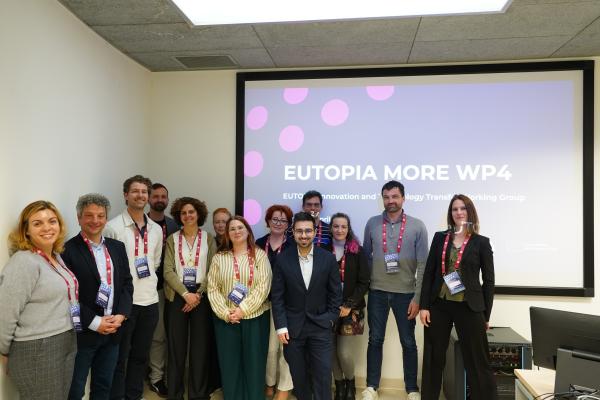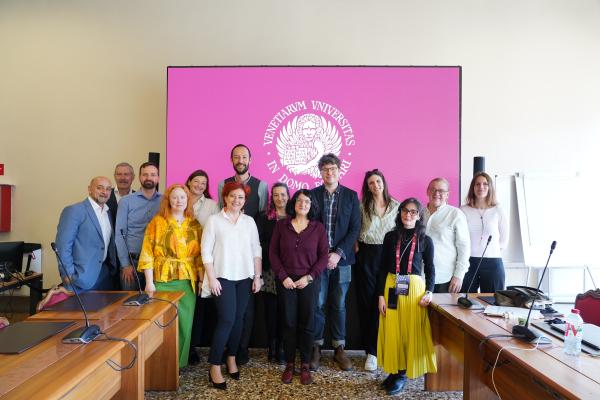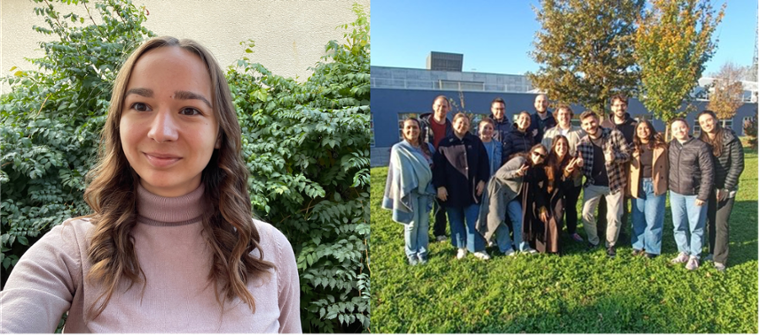In early April 2025, EUTOPIA brought together two of its working groups for a dynamic week of exchange and reflection in Venice. Held across Ca’ Foscari University’s campuses in Mestre and the historic city centre, the events focused on two vital themes for the future of higher education: technology transfer and responsible internationalisation. The back-to-back workshops gathered tech transfer professionals, academics, policy experts, and international partners to confront shared challenges and shape common approaches to valorising research and collaborating responsibly in a shifting global context.
April 2, 2025: Innovation and Technology Transfer Working Group

On 2 April, the Innovation and Technology Transfer Working Group met at Ca' Foscari University's Scientific Campus in Mestre, bringing together Technology Transfer officers from across the alliance. The session focused on how Technology Transfer Offices (TTOs)—key actors in turning academic research into real-world impact—can contribute to EUTOPIA's broader mission under the 2025-2026 Plan. Representatives presented current and upcoming initiatives and explored how to better engage with local stakeholders, including regional businesses, third-sector organisations, and public authorities. Discussions tackled common legal, operational, and funding challenges, and emphasised the need for a shared local development plan to strengthen collaboration and knowledge valorisation across the alliance. While structural differences between national systems remain a barrier, the event highlighted the importance of cross-institutional dialogue, transparency, and learning from each other’s best practices.
April 3-4, 2025: Responsible Internationalisation Working Group

The second event, which took place from 3-4 April at Ca’ Foscari’s historic campus on the Grand Canal, brought together academics, policy experts, and institutional leaders from the alliance for the third workshop of the EUTOPIA Responsible Internationalisation Working Group. Guest speakers from the European Commission, UNITE! Alliance, UNESCO and the UN’s Sustainable Development Solutions Network (SDSN) were also present to share their insights. This edition focused on responsible knowledge transfer in higher education as a channel for innovation, equity, social responsibility, and global impact—particularly in climate and heath contexts.
Building on previous workshops of the working group that addressed fair partnerships and research security, this workshop tackled the structural, ethical, and operational challenges of knowledge and technology transfer and valorisation, in an era of geopolitical instability. The sessions raised questions such as: Whose knowledge is being transferred? How can universities ensure knowledge transfer serves society rather than markets alone? And can European university alliances like EUTOPIA help reshape the norms?
Dr. Federica Baldan from the European Commission outlined evolving EU-level frameworks that go beyond narrow interpretations of tech transfer to embrace broader knowledge valorisation. However, as participants emphasised, implementation lags behind intention.
Professor Josep Bordonau from the UNITE! Alliance warned of structural bottlenecks in translating academic innovation into market solutions, particularly for underfunded start-ups in Europe that often get poached by better-financed ecosystems in Asia and the United States. Professor Scarlett Cornelissen (Stellenbosch University) challenged Global North biases in knowledge transfer and called for co-creation with the Global South. This was echoed by Dr. Samuel Partey (UNESCO), who stressed that the legitimacy of knowledge—its ethical grounding and relevance—is as vital as its content. He urged greater integration of indigenous knowledge, especially for climate resilience and biodiversity, and framed this within science diplomacy, highlighting how UNESCO leverages scientific cooperation to bridge geopolitical divides and shape ethical global standards.
Other sessions provided grounded insights, notably from the University of Ljubljana. Professor and Vice Rector for Internationalisation Boštjan Markoli presented Slovenia’s structured but still-evolving ecosystem for technology transfer, which is backed by EU and state funding, but constrained by operational, legislative, and human resource challenges.
Throughout the workshop, a recurring theme was the role of alliances like EUTOPIA in shaping responsible and equitable knowledge transfer practices. Unlike individual institutions, alliances have collective bargaining power, a collective voice to advocate for policy change, and the trust built through shared values, which stands to pay dividends in the transfer and valorisation of knowledge.
The workshop concluded with a clear call to action: EUTOPIA should take the lead in setting standards, guidelines, and best practices for knowledge and technology transfer, including the creation of impact-driven KPIs (Key Performance Indicators) and creating stronger links between science diplomacy and knowledge transfer. Participants also proposed aligning more closely with global networks like the UN’s Sustainable Development Solutions Network (SDSN). Martin Eriksson, who represented SDSN Northern Europe at the workshop, emphasised the link between socially responsible innovation and the Sustainable Development Goals, and offered to support EUTOPIA in designing joint training initiatives.
Perhaps the event’s biggest contribution was its redefinition of knowledge transfer itself—not as a one-way pipeline from lab to market, but a participatory and politically conscious process.
The Responsible Internationalisation Working Group’s journey continues later this year, where an upcoming summit in Brussels will bring together the key themes and insights from all three workshops. Stay tuned!

